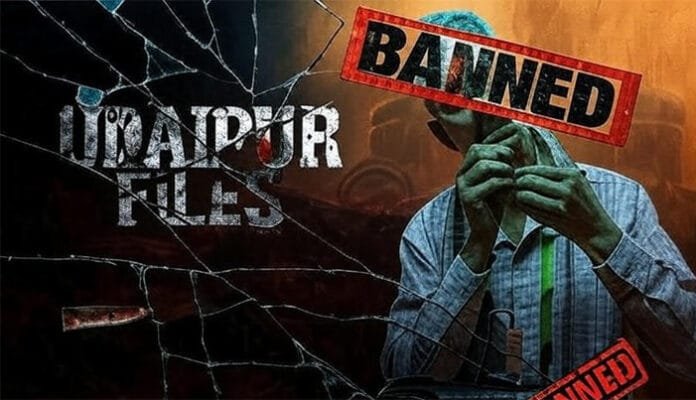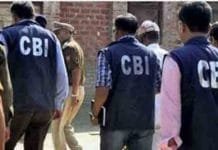In a dramatic development, the Delhi High Court has banned the release of the film Udaipur Files, a political thriller centered on the murder of Kanhaiya Lal, a tailor from Rajasthan who was killed in 2022. The film’s producer, Amit Jani, has announced his decision to approach the Supreme Court in response to the ban, sparking widespread political and social debate across the country.
Delhi High Court Orders Immediate Halt to Film Release
The court’s decision came after a petition was filed by Jamiat Ulema-e-Hind and Prashant Tandon, who objected to the film’s certification by the Central Board of Film Certification (CBFC). According to the petitioners, the content of Udaipur Files has the potential to inflame communal tensions and disturb public order. The court concurred with the arguments presented and issued a temporary ban on the film’s release, stating that it would remain effective until a final decision is made by the Central Government and the CBFC.
Amit Jani Vows Legal Battle: To Challenge Ban in Supreme Court
Speaking to ANI, filmmaker Amit Jani expressed strong disapproval of the court’s ruling. He emphasized that the film had already undergone scrutiny and received CBFC certification. Jani also accused Kapil Sibal, counsel for the opposition, of opposing the film despite watching it in its entirety, alleging bias due to client obligations. “Even after watching the film, he is opposing it because he has taken fees from them,” said Jani.
He further stated, “We are going to the Supreme Court to challenge this unjust decision. The Central Government has been directed to review the film, and we are confident justice will prevail.”
Context of the Film: The Murder of Kanhaiya Lal
Udaipur Files is inspired by the brutal murder of Kanhaiya Lal Teli, which occurred in Udaipur, Rajasthan, in June 2022. Kanhaiya Lal, a tailor, was allegedly killed after expressing support for BJP spokesperson Nupur Sharma, who had been embroiled in a controversy over remarks about Prophet Muhammad.
The murder was captured on video by the assailants and widely circulated on social media, causing nationwide shock and outrage. The gruesome nature of the act prompted demands for swift justice and exposed vulnerabilities in inter-community relations across the country.
Censorship Debate Rekindled: Artistic Freedom vs. Public Order
The ban on Udaipur Files has reignited debates around artistic freedom, censorship, and the role of cinema in portraying sensitive real-life incidents. According to legal experts and civil rights advocates, such bans set troubling precedents that could hinder the creative liberties of filmmakers across India.
Supporters of the ban argue that the timing and tone of the film could disrupt communal harmony, especially in a politically sensitive environment. The court’s directive explicitly stated that the public interest must be balanced with the right to free expression, and until the government reviews the matter, the film cannot be released.
Controversial Content Under Scanner
Though the content of Udaipur Files remains largely under wraps, sources close to the project suggest that the film takes a hard-hitting approach to the events surrounding Kanhaiya Lal’s death. The narrative is believed to include graphic depictions, direct political commentary, and dialogues that could be perceived as provocative by certain communities.
The CBFC had earlier granted certification to the film, which was scheduled to release on July 11, just days after the two-year anniversary of the killing. Following the court’s intervention, the film will now remain banned until a seven-day review period is concluded by the Ministry of Information and Broadcasting.
Jamiat Ulema-e-Hind’s Stand: Film Threatens Social Unity
The petition filed by Jamiat Ulema-e-Hind, a prominent Islamic organization, expressed grave concern over the film’s release. They contended that the movie could damage India’s social fabric, promote hostility between communities, and incite violence.
In their submission, the petitioners highlighted that even though the film had been certified by the CBFC, its content required further scrutiny due to its potential consequences. The Delhi High Court appeared to accept this argument, issuing a clear directive halting the release until the government reviews the situation.
Political Reactions and Public Sentiment
The ban has triggered a wide range of political reactions, with right-wing groups criticizing the decision as a suppression of truth and an attempt to “whitewash” a terrorist incident. On social media, hashtags like #UdaipurFiles and #JusticeForKanhaiyaLal began trending shortly after the court order, with many users demanding that the film be allowed to screen.
Conversely, several civil society groups and political leaders have lauded the court’s decision, emphasizing the importance of communal harmony and urging restraint in the portrayal of real-life violence.
Legal Perspective: CBFC Certification vs. Judicial Review
The conflict between CBFC certification and judicial bans has become increasingly common in recent years. While the CBFC functions as the statutory body for reviewing and certifying films in India, courts have occasionally intervened when concerns of public order and communal harmony are raised.
In this case, the Delhi High Court prioritized potential societal impact over previously granted certification. It cited the need for additional governmental oversight, and gave the Centre a week to arrive at a conclusion regarding the film’s suitability for public screening.
Next Steps: Supreme Court Appeal and Government Review
Amit Jani has confirmed that an appeal is being filed in the Supreme Court, challenging the Delhi High Court’s ban. Simultaneously, the Central Government and CBFC have been asked to reevaluate the film within seven days and provide clarity on whether the film violates existing legal or ethical standards.
Until then, all promotional activities, public screenings, and digital releases for Udaipur Files have been suspended.
Wider Implications for Indian Cinema
This case serves as a watershed moment in the ongoing dialogue between creative expression and societal responsibility in Indian cinema. As films increasingly delve into real-life political and religious themes, the scrutiny they face from legal, social, and political perspectives continues to intensify.
The outcome of this case will not only determine the fate of Udaipur Files but may also set legal benchmarks for how future films based on controversial events are handled in India.
Conclusion: A Nation Awaits the Verdict
The fate of Udaipur Files now lies in the hands of the Supreme Court and the Central Government. As debates over freedom of expression, judicial authority, and national unity continue to dominate headlines, this case has become a symbol of the larger battle between storytelling and sensitivity in a pluralistic democracy.
The coming days are crucial. Whether the Supreme Court overturns the ban or upholds the High Court’s decision, the ruling will shape not only the narrative around Kanhaiya Lal’s murder but also the broader landscape of Indian film censorship.
















